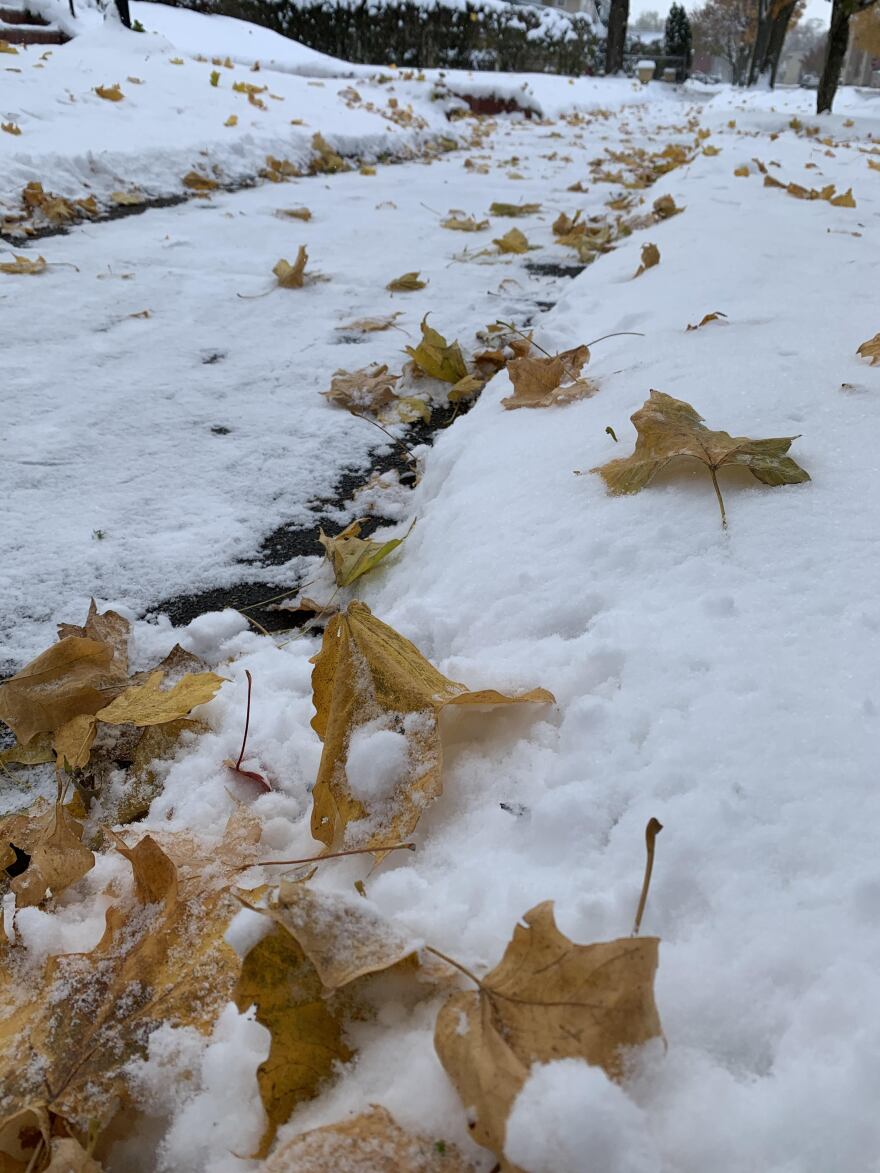Early Winter weather conditions like snow and cold temperatures don’t mean the effects of climate change have stopped.
When most people think of global warming, they think of extremely hot temperatures - but harsh winter weather can also be a sign of climate change.
Philip Sakimoto teaches in the sustainability minor at the University of Notre Dame and works to educate the public about climate change. He said that while the overall temperature of the earth is heating up, all weather patterns are being disrupted.
“It’s this imbalance of warming that drives most of the problems and we get extreme weather in both ways.”
He said climate change can cause floods, droughts, heatwaves, and excessive cold.
“I was just thinking this morning when I was walking in and looking at the snow on the ground and the leaves still on the trees and the leaves falling on top of the snow, I’m thinking that our whole fall weather pattern has been turned upside down.”

Sakimoto says the arctic poles are heating up quickly and the jet stream can't hold back the arctic air which is why long periods of warm temperatures are met with sudden winter weather.
Contact Annacaroline at acaruso@wvpe.org or follow her on Twitter at @AnnacarolineC16
If you appreciate this kind of journalism on your local NPR station, please support it by donating at: https://wvpe.





